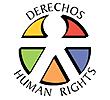

|
Intro to Human Rights in Cambodia
by Craig Etcheson
Over the course of the last thirty years, Cambodia has experienced one of the most dreadful human rights records in modern history. The worst was between 1975 and 1979 under the Communist Party of Kampuchea, the "Khmer Rouge," who carried out war crimes, genocide and other crimes against humanity on a scale that left more than one quarter of the population dead and the remainder in a semi-permanent state of shock. Though the situation improved markedly with the overthrow of the Khmer Rouge regime in 1979, and has advanced since then, the improvement has been unsteady and relative. Even today, following the end of the three decades of civil war in 1998, human rights remain more a theoretical aspiration than a reality for the vast majority of Cambodia's population. The situation is exacerbated by a judicial system that remains fundamentally unreconstructed from its authoritarian roots and a "culture of impunity" among elite segments of society in which the powerful prey at will on the society at large.
Cambodian law still explicitly denies many rights to the twenty percent of the population that is not of the majority Khmer ethnic group. Trafficking in humans has become a major industry in recent years. Though women were accorded equal rights with men under the 1993 constitution, cultural practices continue to deny females fair treatment in many spheres of life. Torture is commonplace in police custody, prison conditions remain mostly substandard, and regular reports of extrajudicial execution by authorities and their cooperation with "mob justice" continue to accumulate; mob justice has been growing because the people believe the courts are corrupt, and the police seem to agree. Perhaps the most glaring and emblematic of human rights issues in Cambodia is the fact that after perpetrating one of the worst genocides in history, not a single leader of the Khmer Rouge movement has ever been brought before a court of law to answer for those crimes. Since the United Nations peacekeeping mission to Cambodia in 1992-1993 planted the first seeds of multi-party liberal democracy in Cambodia, however, a score or more indigenous human rights organizations have been founded and are struggling to advance on a broad spectrum of issues ranging from reform of the police, military and judiciary, children's, women's and labor rights, electoral reform and good governance, and respect for the rule of law, including ending the impunity of the Khmer Rouge for their genocidal policies of the 1970s. These dedicated pioneers deserve the support of the international community in their brave efforts to improve the lot of their fellow citizens.